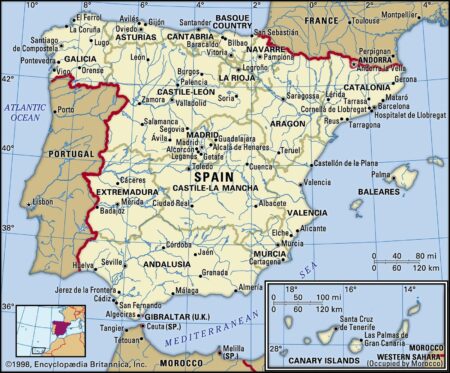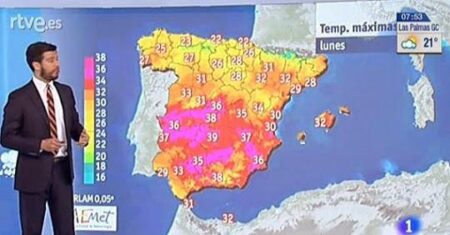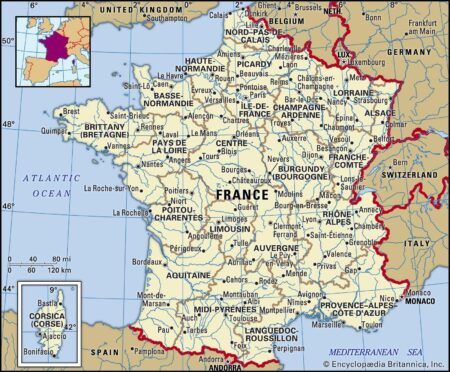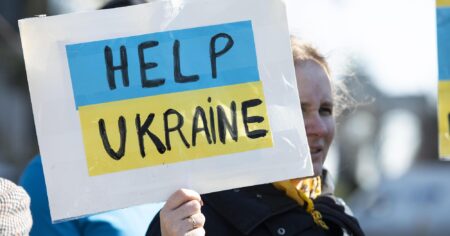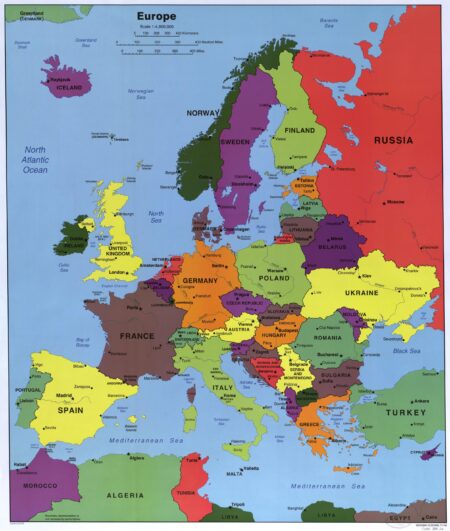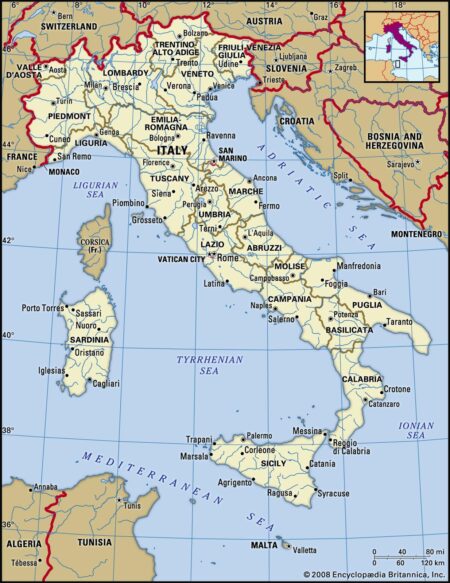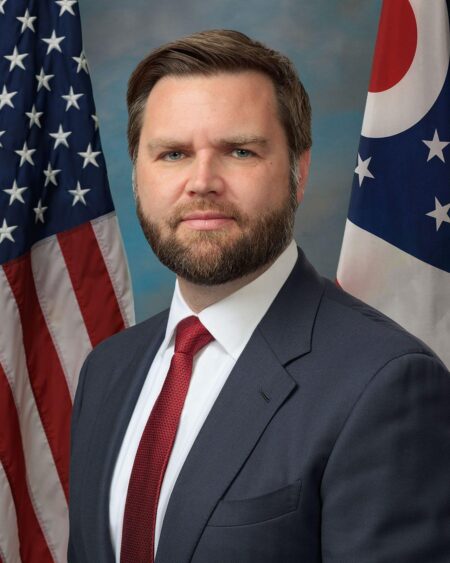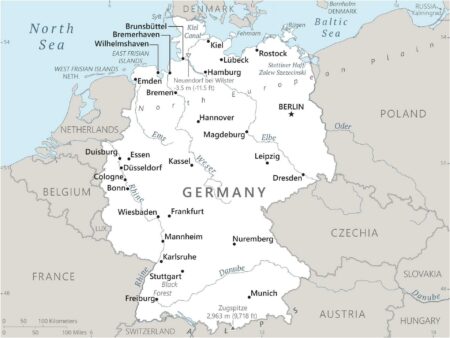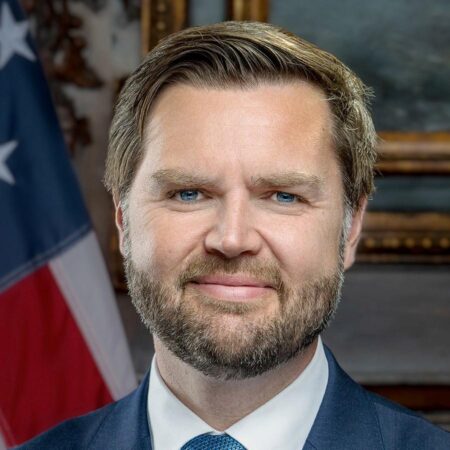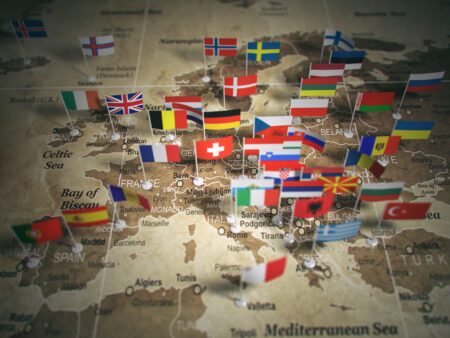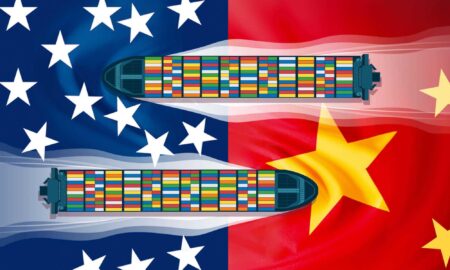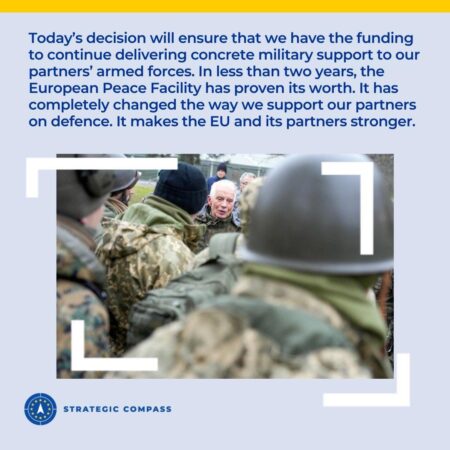Germany has decisively turned down the idea of splitting Europe’s power market into zones, asserting that this approach would jeopardize both market efficiency and stability. This bold stance emerges during a critical period of discussions surrounding energy security and pricing, especially in light of the ever-changing crude oil prices
Browsing: Europe
Spain and Portugal find themselves in a gripping state of emergency as a massive power outage wreaks havoc on daily life throughout both countries. Authorities are racing against the clock to restore electricity, while residents navigate the hurdles brought on by this unexpected blackout.
Spain is gearing up for an intense heat wave, with temperatures expected to climb to a sizzling 30°C this May Bank holiday! Weather maps are ablaze in red, indicating the arrival of extreme conditions. Residents are urged to stay hydrated and take precautions against prolonged sun exposure. Get ready for a hot holiday!
France and Germany’s recent diplomatic rapprochement has ignited a wave of optimism throughout Europe. However, beneath this hopeful surface, significant tensions surrounding defense, energy, and economic policy continue to simmer. Analysts are left pondering: can this blossoming partnership truly endure the weight of these deep-rooted differences?
In an exciting development, Brazil’s Tania Bulhões has taken a bold step by acquiring her second property in the picturesque Limoges area, marking a thrilling debut for the brand in Europe. This strategic move highlights Bulhões’ dedication to broadening her international footprint and elevating her brand on the global stage.
In a powerful declaration, France reaffirmed that Europe will steadfastly demand the respect of Ukraine’s territorial integrity in all future peace negotiations. This commitment highlights the continent’s united front against aggression and unwavering support for Ukrainian sovereignty.
Ukraine and European leaders firmly believe that any land agreements with Russia should hinge on a ceasefire, highlighting the critical importance of achieving stability and peace before moving forward with negotiations. This position sheds light on the intricate web of ongoing geopolitical tensions.
Telefónica is setting its sights on a significant opportunity in Spain’s rapidly expanding €10.5 billion defense sector. As the government ramps up military spending, this telecom powerhouse is poised to harness its cutting-edge technological expertise to bolster national security.
In a world fraught with tension surrounding Ukraine, European and American leaders are stepping up to foster dialogue and mend their differences. As diverse strategies come to light, these crucial discussions strive to harmonize their efforts in supporting Ukraine during this turbulent time.
Italy’s Prime Minister Giorgia Meloni is set to embark on an exciting diplomatic mission to the U.S., with a bold vision of fortifying transatlantic ties in the face of growing global uncertainties. This visit not only underscores Europe’s evolving landscape but also positions Italy as a key player in tackling urgent challenges that lie ahead.
JD Vance set off on an intriguing journey to Italy and the Vatican, a trip that comes on the heels of his recent public clashes with Pope Francis regarding migration policies. This visit not only underscores the heated discussions surrounding immigration but also illuminates the complex relationship between politics and faith.
In a pivotal diplomatic gathering, US, Ukraine, and European officials came together in Paris for high-level talks, breaking weeks of silence and uncertainty. Attendees hailed the discussions as an “excellent exchange,” emphasizing their commitment to fortifying alliances and bolstering support for Ukraine.
France has embraced what it describes as a “promising development” in the ongoing dialogue between Europe and the United States about a potential ceasefire in Ukraine. These crucial discussions seek to tackle the intensifying conflict and pave the way for diplomatic solutions that could lead to enduring peace.
Germany’s Hubergroup has taken a bold step forward by enhancing the heat resistance of BOPE film with an exciting new varnish. This groundbreaking innovation is set to elevate performance in high-temperature applications, marking a remarkable leap in the world of flexible packaging solutions.
In a captivating interview with CBS News, JD Vance delved into pressing security issues facing Europe, underscoring the vital role of US support for Ukraine. He also explored the ramifications of Trump’s tariffs, shedding light on how they could reshape transatlantic relations
Italy’s Prime Minister Giorgia Meloni visited the White House to address growing trade tensions between the U.S. and Europe. The talks aimed at fostering stronger economic ties and resolving disputes, signaling Italy’s role in promoting transatlantic collaboration.
Prices for the PlayStation 5 have surged in Europe and Australia, raising concerns that U.S. gamers could face similar increases. Industry analysts suggest rising production costs and economic factors may lead to price adjustments in the coming months.
Italy’s Giorgia Meloni exemplifies the challenges of moderating Europe’s far-right movements. Despite attempts to present a more palatable image, her government’s actions reveal the enduring appeal of nationalist rhetoric, threatening EU cohesion.
The ongoing US trade war may lead to a significant shift in global trade dynamics, as experts suggest Chinese goods could increasingly find their way into European markets. This trend could reshape supply chains and impact economies on both sides of the Atlantic.
European nations have pledged billions in military assistance for Ukraine amid growing tensions. This commitment comes as a US envoy holds talks with President Putin, highlighting the escalating geopolitical dynamics in the region.


